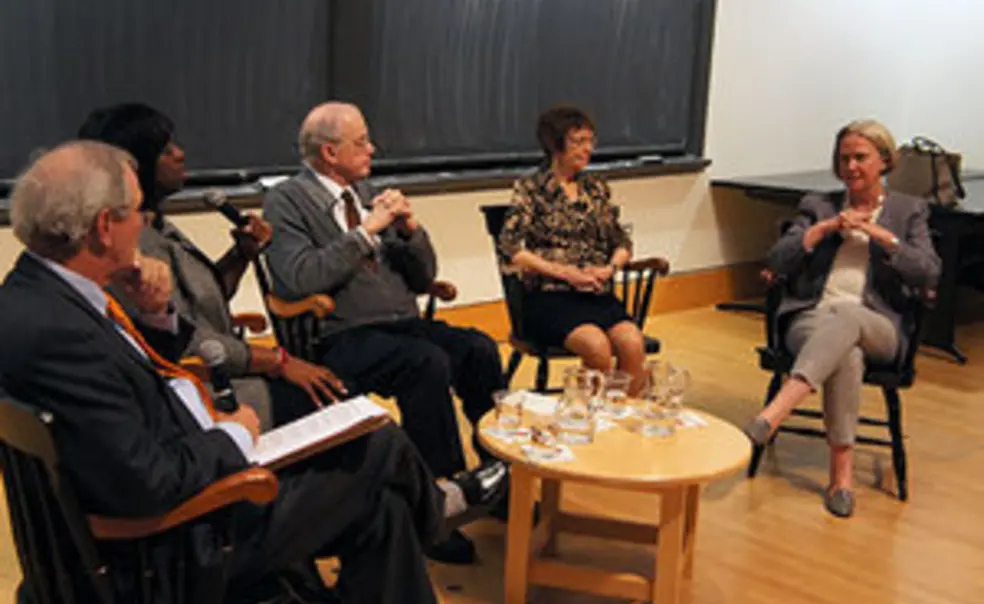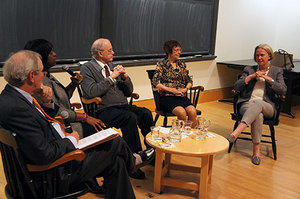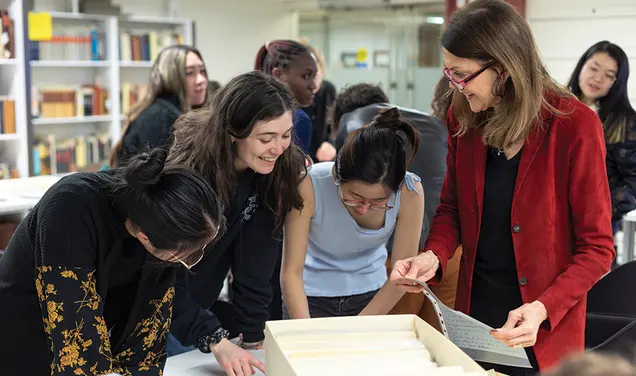Tilghman, Shapiro *64, Ambar *94, and Chopp Discuss the Future of Higher Education
Despite its number one spot on college rankings, Princeton must continue to experiment with how it educates students, former University president Harold Shapiro *64 said at a Sept. 29 conversation on education.
The conversation, held in the Friend Center, was part of the 75th anniversary celebration of the Princeton Adult School, a nonprofit organization that offers classes for adult residents of the Princeton area. University trustee and former ABC News anchor Charles Gibson ’65 discussed changes in higher education with four current or former college presidents: Shapiro, Shirley Tilghman, Carmen Twillie Ambar *94 of Cedar Crest College, and Rebecca Chopp of Swarthmore College.
Tilghman pointed out that at Princeton, one significant ongoing change is the diversity of the student body. “We have to continue to do a much better job at finding highly talented students from all over the world, and we’ve got to find them in all socioeconomic categories,” she said.
Tilghman also stressed that there still remain many high-achieving low-income students who are not getting the education they deserve and that Princeton should increase efforts to reach out to them.
Chopp added that at Swarthmore, not only is today’s student body more diverse in terms of socioeconomic status, but it is also more diverse in terms of learning styles. According to Chopp, one way institutions are addressing this change is by using technology to enhance education.
“I think about teaching in the future as improv jazz instead of handing down knowledge over generations,” she said. “We’re going to see more and more hands-on learning, more and more flipped classrooms, which means the students are first watching the lecture in their bedrooms and going in to the seminars.”
When asked about massive open online courses, or MOOCs, all four presidents agreed that the courses were more of a fad than a feasible substitute for real classrooms. Ambar said that small private online courses present a more effective model for online teaching. For a new generation that grew up interacting virtually, small online courses might even replace in-person classes in the future, she said.
“[The new generation’s] view of engagement and being connected is just different from ours. There will be students doing a combination of living in the residential colleges, going to class on campus, or doing online courses,” Ambar said.
Whether it is by increasing the diversity of the student body or by moving classes to the Web, institutions of higher education, including Princeton, must be steadfast in their efforts to innovate education, the panelists said.
“Our greatest weakness is too much self confidence, too much belief in what we’re doing today, and not searching for some experimental, exciting way,” Shapiro said. “Everyone says you’re terrific — that’s a dangerous place to be in a changing environment.”











No responses yet